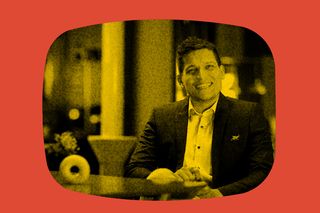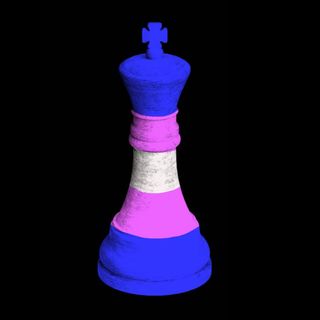
Indian Matchmaking’s Pradhyuman Maloo Has Been Accused of Domestic Violence
Is reality TV complicit in framing men’s red flags as entertainment?

Reality TV contestant Pradhyuman Maloo has been accused of domestic violence, according to a Hindustan Times report. Maloo appeared on Netflix’s Indian Matchmaking, a show in which matchmaker Sima Taparia tried to set up arranged marriages between young Indians. While Taparia did not manage to find him a suitable match, Season Two of the show saw Maloo getting back with his then-girlfriend, Ashima Chauhaan. Chauhaan and Maloo later got married; now, however, Chauhaan has lodged an FIR against both Maloo and his family, accusing them of physical and emotional abuse and of blackmailing her family.
In Season One, Maloo famously rejected 150 women’s proposals, with the show highlighting his high standards and “superficiality” in his search for his dream life partner. When the show first introduces him, Taparia says she knew the family for several years: “they’re lovely people, and a very good cultured family.” She laments his “high expectations” — something women on the show are called “picky” for. “The boy is good, he’s fair, he’s tall, and a very handsome guy, a good-natured guy,” Taparia ultimately concludes.
The first thing Maloo says about Chauhaan when the show first introduces her is “She dresses really well.”
Indian Matchmaking has already been heavily criticized for its benign approach towards the classism, casteism, colorism, and sexism that are in-built into the arranged marriage process. Its hands-off treatment of obvious instances of stereotypical rhetoric and coercive pressure on women was perhaps meant to depict the arranged marriage scene for what it is — but it’s hard to ignore the fact that many of these were framed as entertaining little quirks. And that’s a problem.
Perhaps the most infamous example of this is Rahul Mahajan, a reality TV star who appeared in multiple shows before starring in his own, Rahul Dulhaniya Le Jayega, where several women competed to win his hand in marriage. He ultimately married model Dimpy Mahajan in 2010, in a wedding that was telecast nationally. But here’s the catch: he had already been accused of domestic violence at the time by his ex-wife Shweta Singh. His second marriage ended similarly, with Dimpy Mahajan filing for divorce and accusing him of domestic violence.
As recently as February of last year, he appeared on the show Smart Jodi with his current, and third, wife.
Another Bigg Boss contestant, Shalin Bhanot, was accused of domestic violence and dowry harassment by his ex-wife, Dalljiet Kaur. He then participated in Bigg Boss 16, and pursued another contestant afterthe divorce. When Tina Dutta, the contestant he was interested in, asked him about the allegations, he called them “funny.” “If something wrong happens, it’s always the boy’s fault,” he told her, brushing off the allegations.
Related on The Swaddle:
Sajid Khan’s ‘Bigg Boss’ Participation Shows How Reality TV Whitewashes #MeToo Accused
The pattern, moreover, seems to apply across reality shows all over the world. Married At First Sight participant Aimee Collins previously called out dating and romance reality shows after she was paired with a man charged with domestic violence. Domestic violence survivors also called out to the same show for failing to recognize abusive patterns in one of the show’s contestants’ behavior toward another; the show exec, however, that the network didn’t consider the dynamic to be violent.
Several Korean reality shows, like Oh Eun-young’s Report: Marriage Hell, Teenage Parents, We cha-cha-cha, Between Marriage and Divorce, and We Got Divorced 2 have all also been heavily criticized for featuring explicit domestic physical and emotional abuse between partners, sometimes in front of their children, ultimately ending in reconciliation.
This seems to be a particular problem with reality TV where dating and romance are key axes of the drama. Studies have found that reality TV often has more “relational aggression” — or behaviour harming a social environment — than other genres. One study found the “role congruity theory” to be at play, wherein viewers of reality TV positively evaluated aggressive behaviour from men on the shows, since it conforms to their social expectations of men’s behaviour in general. Researchers have also expressed concern that reality shows like Love Island normalize domestic abuse. “The dynamics of reality TV shows, where conflict is encouraged by introducing jealousy and intrigue, legitimises defences such as ‘they deserved it,’ which can cause questionable behaviour to spiral on these shows,” wrote researchers Nathan Birdsall and Scott Keay in The Conversation.
Clearly, reality TV — especially dating and romance shows — walk a fine line between platforming and endorsing the worst of masculinity. “TV profiting off abusive behavior is not new… more often than not, it is the most caustic, reprehensible of personalities that often become reality stars who leverage their clout beyond just entertainment. The ascension of Donald Trump to the U.S, Presidency is a case in point: reality TV makes for powerful social and cultural clout. It is a vehicle to gain cultural mileage and a get-out-of-jail-free card for inexcusable behavior,” The Swaddle noted earlier.
In the case of Indian Matchmaking, the messaging around masculinity is that being handsome and coming from a “good cultured family” are enough to make prospective grooms a catch; for prospective brides, on the other, the admonishment is to always “compromise,” “adjust,” and “lower expectations.” When men’s entitlement and superficiality is played off as men being men, and is indeed the highlight of the show, the messaging at play is insidious: The characteristics that look like red flags are really quirks that must be rewarded with more attention and interest instead.
Masculinity doesn’t have to be this way, and it isn’t funny, entertaining, or quirky only when it encompasses selectiveness, objectification, or entitlement. But when the “reality” version of masculinity on offer is often riddled with red flags and warning signs, it’s not only harmful to feminist discourse, but also to men themselves. But given the fact that domestic violence allegations have not stopped reality shows from inviting the same men back on their shows — arguably because of the allegations adding more drama — reality TV is complicit in a harmful hetero-patriarchal culture that’s a disservice to everyone, including men.
Rohitha Naraharisetty is a Senior Associate Editor at The Swaddle. She writes about the intersection of gender, caste, social movements, and pop culture. She can be found on Instagram at @rohitha_97 or on Twitter at @romimacaronii.
Related


Sizzle This: Big Day For Brown Munde
